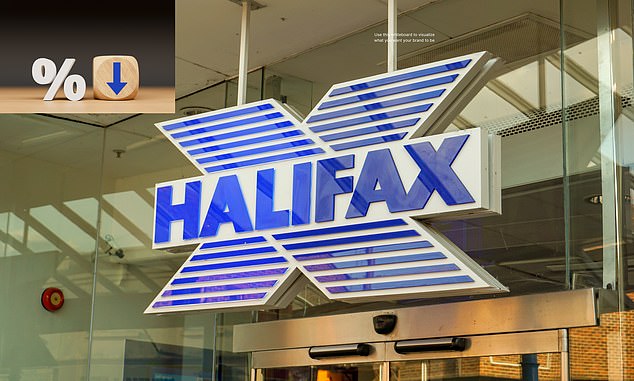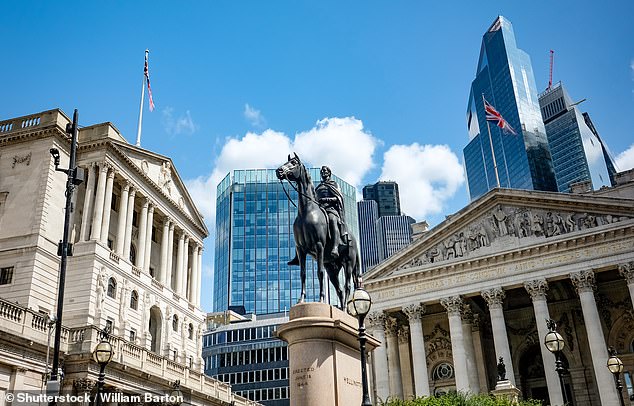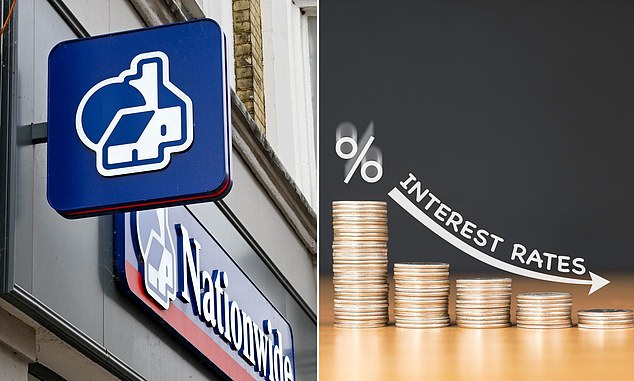Table of Contents
Five-year fixed-rate mortgages will fall below 4 percent for the first time in five months after Nationwide announced further cuts.
From tomorrow, Britain’s biggest building society will cut rates by up to 0.25 percentage points on its two-, three- and five-year fixed-rate products, with its lowest offer now at 3.99 per cent.
Nationwide’s announcement follows lower moves by HSBC yesterday and also by Halifax, NatWest and TSB at the end of last week.
Nationwide has become the first major lender since February to resume offering a five-year fixed mortgage with a rate below 4 percent.
Mortgages fall below 4%: Nationwide has made cuts to several of its fixed-term deals
The five-year 3.99% fixed rate is aimed at home buyers with a deposit of at least 40%, but also comes with a hefty £1,499 fee.
Someone getting this rate on a £200,000 mortgage repaid over 25 years could expect to pay £1,055 a month.
Compared to the market-wide average five-year fixed rate of 5.4 per cent, according to Moneyfacts, this represents a monthly saving of £161.
Nicholas Mendes, mortgage technical manager at broker John Charcol, said: ‘This is fantastic news for borrowers and marks a significant change in the mortgage landscape following recent months of rising rates.
‘This rate is only for purchases. Those who refinance their mortgage will have to wait a little longer before we see rates below 4 percent as well.
‘We are likely to see companies like HSBC try to re-price to ensure they stay ahead of the pack, which could result in another rapid price adjustment by them.
‘Lenders have been busy competitively renegotiating prices among themselves over the past two weeks, with purchase rates significantly lower than refinance rates.
‘Purchase rates are very competitive compared to market prices. The biggest future reductions are expected to occur in refinancing rates, as they still have room to decline, and significant reductions are expected in this area.’
What are the best mortgage rates available?
Nationwide’s latest pricing change opens up more affordable opportunities not only for home-movers, but also for first-time buyers and those refinancing their mortgage.
Much like its offers aimed at home-movers, Nationwide’s best refinance deals are aimed at homeowners with the highest amounts of equity.
Basically, this means that someone needs a mortgage that covers no more than 60 percent of the property’s market value.
Its best five-year fixed rate is 4.27 per cent with a fee of £1,499. From tomorrow, it will be the lowest rate on the market.

The only way is down: Halifax also cut rates last week in further good news for borrowers
Those who need a mortgage to cover 75 per cent of the value of a property can also get the best deals on the market with Nationwide.
Its lowest five-year fixed rate, with a loan-to-value ratio of 75 per cent, is 4.43 per cent with a fee of £999 (second best) and its lowest two-year fixed rate is 4.79 per cent (fourth best, shared).
First-time buyers can also get great rates with Nationwide.
The five-year fixed rate, for those buying with a 15 per cent deposit, will be reduced to 4.55 per cent with a fee of £999. The two-year fixed rate is available at 4.95 per cent.
Meanwhile, first-time buyers entering the market with a deposit of at least 40 per cent will now be able to get as little as 4.34 per cent with Nationwide, although this comes with a £1,499 fee.
Elliot Culley, director of Switch Mortgage Finance, told Newspage: ‘It’s been a long time since we’ve seen rate cuts continue to fall for several weeks in the way they have been doing.
‘This is good news for borrowers, although there is still a long way to go to fully revive the market.
‘Many borrowers will be eagerly awaiting the Bank of England’s decision on the base interest rate next week.’

We won’t budge: The Bank of England has kept the base rate at 5.25% since August 2023, but is expected to make its first cut next month or in September.
Variable mortgage rates on the rise nationwide
However, Nationwide is also simultaneously raising its variable interest rates, which mortgage brokers believe raises questions about the mutual’s motivations.
Tracked loans follow the Bank of England base rate plus a fixed percentage, for example the base rate plus 0.75 per cent. They often have no early repayment charges, allowing users to switch loans whenever they want without incurring penalties.
Darryl Dhoffer, mortgage broker at The Mortgage Expert, told Newspage: “Normally, a rise in interest rates would signal anticipation of an imminent increase in base interest rates by the Bank of England. However, current economic forecasts suggest this is not on the horizon for 2024.”
‘This disconnect between market expectations and Nationwide’s stock could be interpreted by some consumers as a speculation strategy.
‘However, the timing of these changes raises questions. Offering lower fixed rates while simultaneously increasing variable interest rates creates a perception of opportunism, which could erode consumer confidence.
Michell Lawson, director at Lawson Financial, added: ‘A rate cut is always good news for borrowers, however what is puzzling is why there is an increase in the trailing spread.
‘I assume this includes in the price a cut in the bank base rate on 1 August, but is it really fair to consumers in a world with consumer obligations to re-price the margin?
‘As we know, fixed rates make money for lenders; variable rates won’t, but people will want them with the rate cuts expected imminently.’
Some links in this article may be affiliate links. If you click on them we may earn a small commission. This helps us fund This Is Money and keep it free to use. We do not write articles to promote products. We do not allow any commercial relationships to affect our editorial independence.

